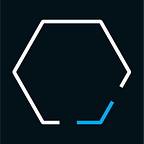Celebrating a Decade of QuantumBlack and WIRED UK
Jeremy Palmer, Chief Executive Officer, QuantumBlack
This month we partnered with WIRED UK to celebrate our joint tenth anniversaries. We welcomed a host of guests to the London’s Science Museum — located a stone’s throw from the famed decorative arts institution the V&A, it was the ideal venue to mark a decade of two organisations focused on fusing the worlds of technology and design.
Since 2009 both QuantumBlack and WIRED have seen the tech landscape evolve dramatically. Advanced analytics has come under the spotlight, with diverse industries around the globe coming to recognise that the key to unlocking industry-leading performance often lies in harnessing data. In particular, by embracing the output of many sources to enable better prediction and decision making.
The teams working on these projects have also evolved — no longer solely the domain of data scientists and engineers, today advanced analytics involves a broad cross-section of interdisciplinary skillsets, with designers playing a crucial role in delivering sector-changing opportunities. These opportunities have generated questions around how organisations can execute machine learning and AI projects fairly and efficiently and these questions are increasingly prominent for leaders and all members of the wider community.
With this in mind, it was our pleasure to welcome two fantastic speakers ideally suited to explore the role of trust and design in today’s rapidly changing world. We’ve provided a flavour of their talks below — alongside a video summarising the evening.
Earning Trust In A Digital Age
Rachel Botsman is the leading expert and author on how technology is radically transforming human trust. As Trust Fellow at Oxford University’s Saïd Business School, Rachel also advises organisations around the world on how to build a trustworthy culture. She is a regular contributor to publications including The Guardian, The New York Times, Harvard Business Review and WIRED, as well as hosting the podcast series Rachel Botsman’s Trust Issues.
Rachel asked our attendees to consider how the notion of trust has evolved throughout history and argued that today it appears that most trust is distributed digitally with technology platforms. We constantly consult reviews or user testimonials to verify our choices — but Rachel argues that this only gives the illusion of control. We do not own these networks, and the traditional big institutions that used to commandeer our trust have simply been replaced by innovative tech organisations creating these networks. And when there is an incident that breaks our trust — a data leak, a privacy issue, or something else — the damage is ultimately greater in an age of distributed trust, as ultimately it reveals that we were not in control at all.
So how can organisations properly earn trust in a digital world? Many people — including Rachel herself until a few years ago — propose greater transparency, either around how technology systems work or around the relationship between organisation and consumer through clearer terms and conditions.
Today Rachel argues that demanding more transparency is to admit that we’ve surrendered any hope for trust in a digital world — after all, trust is a confident relationship with the unknown. Instead, organisations should ask how they can earn trust through culture and behaviour. This, Rachel predicts, will be the future battleground for trust in technology, which has traditionally been focused on capability — how reliable innovation is and whether it delivers what it promises too. Instead, the next decade will be won by organisations who can deliver trustworthy products — innovation and technology that captures public confidence, not by revealing precisely how it operates but by providing trustworthy results.
Innovative Design Requires A ‘Makers’ Network
Artist and innovator Daan Roosegaarde, founder of Dutch social design lab Studio Roosegaarde, specialises in exploring creative designs at the intersection between people, technology and space.
Over the course of his talk, Daan focused in on some of his more high profile projects and how they had fused the worlds of technology and design. His 2017 project Waterlicht harnessed a combination of LEDs and lenses to create an ever-changing virtual flood. To date, it has appeared in The Netherlands, the UK, France and Dubai — but it was only recently in Australia that Studio Roosegaarde discovered that the LED lighting reacted well with rain, creating an even more beautiful shimmering sea of raindrops.
Daan used this example to highlight the need to relinquish control over a creation and trusting others to feed into it in order to create something new and existing. Giving up control — for designers, technical professionals or innovators of any type — can be difficult. We are all ‘makers’ and prefer to keep our creation within the parameters we set. But innovation often requires input from others — and the best creativity often spawns from the unpredictable. It was certainly a view that echoed with QuantumBlack’s own experience — our project protocols bring together a mixture of disciplines to adapt and tinker with each other’s ideas, and we have also Open Sourced our own product to enable the worldwide online community to adapt the innovation created in our Labs.
For those who are interested in finding out more about the event, I encourage you to check out the video below for a snapshot of an incredibly insightful and enjoyable evening — and keep an eye on our website and Medium channel for updates on future QuantumBlack events.
